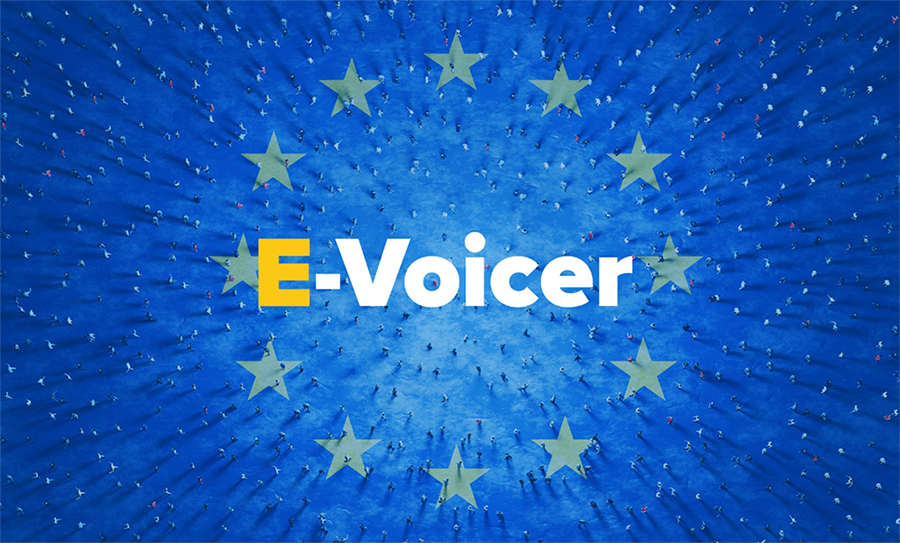E-Voicer: Strengthening Democracy through Digital Engagement

In an era defined by digital transformation and climate challenges that transcend national borders the role of citizens is undergoing a profound evolution. As our world becomes increasingly interconnected, individuals within their respective societies are experiencing a remarkable shift in power and responsibility. The digital age has not only expanded access to information and communication but has also empowered citizens to engage in decision-making processes and hold governments and institutions more accountable. This shift places citizens at the forefront of shaping our shared future, transcending geographical and political boundaries to address challenges that affect us all.
For four months, we opened a public e-discussion with EU citizens on the most urgent challenges we are facing today related to climate change and digital transformation: streamlining decarbonisation and managing the rise of artificial intelligence (AI). On our platform, part of EUact2 project, participants expressed their primal concerns as well as they proposed and voted for the solutions that they see as most effective and beneficial.
What Did We Get?
- 114 active users from 25 EU countries
- 54% women, 45% men, 1% non-binary
- 95% participation of young people (18-35years old)
- 136 standing alone contributions on shared concerns and proposed solutions
- 69 contributions on the green topic of decarbonisation
- 67 contributions on the digital topic of artificial intelligence
- 417 total votes on the contributions
This exercise in citizens digital engagement brought about a multitude of proposed recommendations towards streamlining decarbonisation and managing the rise of AI. Among them:
Green Transition:
- Ensure more availability and use of renewable sources of energy and reliable CRM supply chains;
- Promote and normalise circular economy;
- Invest strategically and long-term in green and sustainable transportation;
- Ensure the increase of energy efficiency of buildings.
Digital Transformation (AI):
- Provide withstanding AI guidelines;
- Strengthen cyber security;
- Reskill and upskill the labour force;
- Promote the beneficial use of AI in everyday life;
- Reduce the costs of digital transformation.
For more detailed and comprehensive information on the e-discussions and recommendations, visit e-voicer.eu
E-Voicer: Have your say on the issues that will shape our future!
Together with other EU citizens, you will be able to discuss the most urgent challenges we are facing today related to climate change and digital transf...
Event Summary of EUact2 Transnational Public Event - New Pact on Migration and Asylum: A Fresh Start?